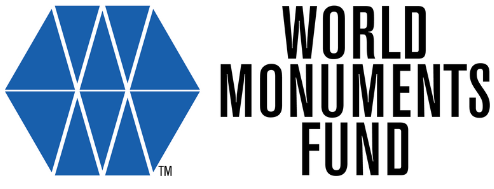With the end of the year just around the corner, I have been reflecting on heritage developments from 2018. As you’re probably aware, several of the largest stories in heritage this year were tragic and cautionary tales of loss. In September, a devastating fire at the National Museum of Brazil in Rio de Janeiro gutted the 200-year-old institution, destroying 90 percent of the collection’s 200 million objects. As I wrote to you then, a loss of this magnitude was truly incalculable.
The heritage community rallied to support the National Museum of Brazil, vowing to prevent a similar tragedy from occurring. Yet, just a few months later, another fire seriously damaged a collection at the Deutsches Museum, one of the largest technology museums in the world. As this catastrophe underscored once again, fire is a serious hazard for heritage collections — and one that makes protection and documentation all the more important.
I’m happy to share with you an option supporting such documentation efforts. AMAL in Heritage, a program GHF has been developing, includes a mobile and web application designed for the rapid impact assessment of damaged heritage areas, buildings, or artifacts. With the recent slew of disasters striking heritage collections, I hope institutions consider AMAL as they explore all options for safeguarding their historic, irreplaceable collections.
Despite the hardships, this year’s lessons come at an especially opportune time. 2018 was the 50-year anniversary of Abu Simbel, the campaign that many consider the starting point for the eventual creation of UNESCO’s Convention Concerning the Protection of World Cultural and Natural Heritage. Over one thousand historic sites and intangible practices throughout the world are now recognized for their importance to humanity because of this historic convention, and these numbers continue to grow with each annual World Heritage Committee meeting, reflecting a growing commitment to broader recognition of and protection for our shared human history and culture.
At this year’s World Heritage Committee meeting, UNESCO inscribed 19 new World Heritage Sites, and the Belize Barrier Reef was officially removed from the World Heritage in Danger list thanks to the tremendous efforts of the Belizean government and UNESCO support. To Belize and the other nations recognized by this year’s World Heritage Committee, I extend my heartfelt congratulations.
Further addressing environmental challenges and heritage, this year’s Global Climate Action Summit explored the special role of culture and heritage in climate action. Throughout the year, I have been glad to see growing discussions about the interconnectedness of culture, heritage, and climate action. At Global Heritage Fund, we understand that community resilience and heritage go hand-in-hand with addressing climate change, and we are proud to support communities as they build capacities and prepare for environmental changes.
This focus on climate change and heritage conservation is at the forefront of our new project supporting community-driven conservation in Morocco. Building on our success with the pilot program in Amtoudi, our new Collective Granaries project is developing sustainable tourism opportunities in Morocco’s Souss Massa, bolstering local economics while building community resilience to climate change.
The project co-director Dr David Goeury spoke recently at an event in London, and program partner Dr Salima Naji was honored as a Chevalière des Arts et des Lettres [Knight of the Order of Arts and Letters] by France for her important work on community-driven preservation of the Collective Granaries. Dr Goeury and Dr Naji also presented at Protecting the Past, our three-day conference bringing together international experts from around the world to exchange ideas and work together towards stronger protection for our world’s most endangered heritage sites.
These are the kinds of successes we at GHF are proud to support. Of course, our work is possible thanks to the support of individuals who care about heritage, history, and culture — just like you. 2018 was a year of hard lessons and exciting opportunities, and I am honored to be able to support historic sites throughout the world. Thank you for joining GHF in protecting the world’s special places for present and future generations.
Sincerely,
Stefaan Poortman
Chief Executive Officer
Global Heritage Fund
P.S. If you haven’t yet made your end of year gift to GHF, your Tax-Deductible Contribution will be matched up to $25,000 by a long-time GHF supporter. Please give today.

